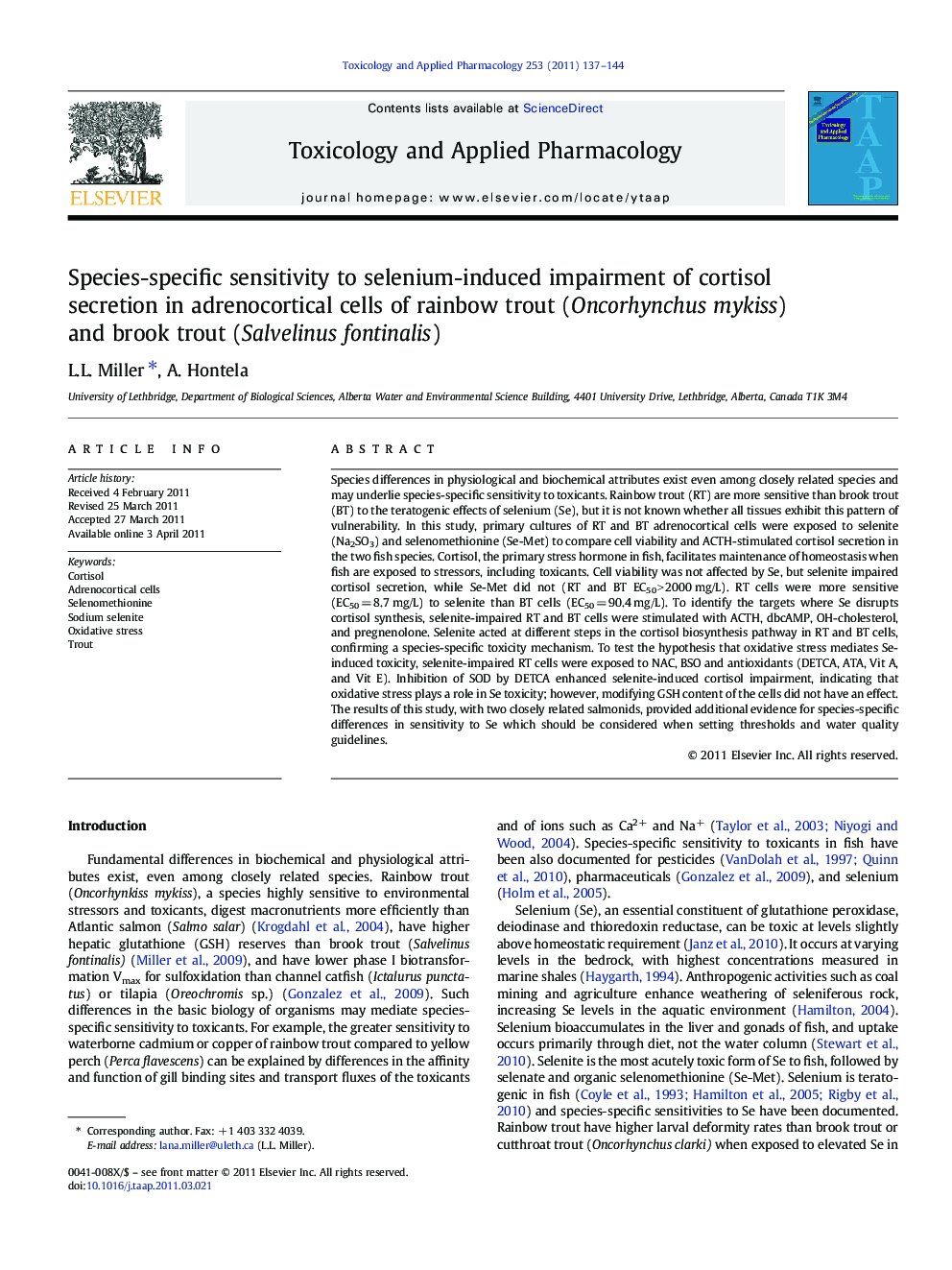| کد مقاله | کد نشریه | سال انتشار | مقاله انگلیسی | نسخه تمام متن |
|---|---|---|---|---|
| 2569593 | 1128538 | 2011 | 8 صفحه PDF | دانلود رایگان |

Species differences in physiological and biochemical attributes exist even among closely related species and may underlie species-specific sensitivity to toxicants. Rainbow trout (RT) are more sensitive than brook trout (BT) to the teratogenic effects of selenium (Se), but it is not known whether all tissues exhibit this pattern of vulnerability. In this study, primary cultures of RT and BT adrenocortical cells were exposed to selenite (Na2SO3) and selenomethionine (Se-Met) to compare cell viability and ACTH-stimulated cortisol secretion in the two fish species. Cortisol, the primary stress hormone in fish, facilitates maintenance of homeostasis when fish are exposed to stressors, including toxicants. Cell viability was not affected by Se, but selenite impaired cortisol secretion, while Se-Met did not (RT and BT EC50 > 2000 mg/L). RT cells were more sensitive (EC50 = 8.7 mg/L) to selenite than BT cells (EC50 = 90.4 mg/L). To identify the targets where Se disrupts cortisol synthesis, selenite-impaired RT and BT cells were stimulated with ACTH, dbcAMP, OH-cholesterol, and pregnenolone. Selenite acted at different steps in the cortisol biosynthesis pathway in RT and BT cells, confirming a species-specific toxicity mechanism. To test the hypothesis that oxidative stress mediates Se-induced toxicity, selenite-impaired RT cells were exposed to NAC, BSO and antioxidants (DETCA, ATA, Vit A, and Vit E). Inhibition of SOD by DETCA enhanced selenite-induced cortisol impairment, indicating that oxidative stress plays a role in Se toxicity; however, modifying GSH content of the cells did not have an effect. The results of this study, with two closely related salmonids, provided additional evidence for species-specific differences in sensitivity to Se which should be considered when setting thresholds and water quality guidelines.
Research Highlights
► We investigated species-specific sensitivity to Se in trout adrenocortical cells.
► Selenite, not Se-Met, disrupts cortisol secretion in trout adrenocortical cells.
► Rainbow trout cells are more sensitive than brook trout cells to selenite toxicity.
► Superoxide dismutase may protect adrenocortical cells from selenite toxicity.
Journal: Toxicology and Applied Pharmacology - Volume 253, Issue 2, 1 June 2011, Pages 137–144